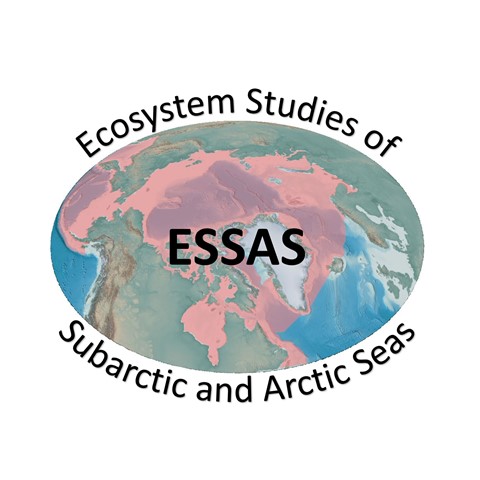His research interests include satellite oceanography with a focus on remote sensing to detect different species of fish and plankton. Additionally, Dr. Naomi Harada accepted an invitation to join the SSC. Dr. Harada is a scientist at the Japan Agency for Marine-Earth Science and Technology (JAMSTEC) in Yokohama. Her research interests include biogeochemistry and paleoceanography. She leads the Paleoceanographic Team at JAMSTEC, and also is leading a major research project on the Arctic Ocean. The ESSAS SSC welcomes this new representation from Asia, and looks forward to expanded ESSAS research activities in Asian regions of the sub-arctic seas.
Unanimous approval of a new ESSAS Working Group on Bioenergetics of sub-Arctic fishes (WGBIOEN). The main objective of the working group is to develop a deeper understanding of climate’s impact on the match between juvenile fish and their prey and the implications of that relationship for future production. WGBIOEN will be co-chaired by Dr. Ron Heintz (Alaska Fisheries Science Center, NOAA, USA) and Dr. Trond Kristiansen (Institute of Marine Research, Norway).
Approval (in principle) of a new Working Group on Human Dimensions (WGHUMD). This Working Group would conduct case studies and comparative analyses of the responses of human systems to regime shifts in biophysical systems, such as the observed transitions between gadid and crustacean dominated systems in the Northeast Pacific and the Northwest Atlantic. This work could build on activities of the WG on gadid-crustacean interactions.
Possible questions WGHUMD will address include
- How have human systems responded to past regime shifts?
- What are spatial and temporal scale effects of human responses to past regime shifts?
- How have alternative management responses and governance systems mitigated or exacerbated human consequences of past regime shifts? and
- How have differences in the local vs. distant water character of fisheries affected human consequences of past regime shifts?
Confirmation of the Working Group on Arctic-Subarctic Interactions (WGASAI) which began work last year to:
- Review, based upon the available literature, the effects of the physical and biological fluxes between the Subarctic and Arctic regions in the atmosphere, marine ecosystem including physics, biogeochemistry and biology, and on human societies and to identify gaps in our knowledge;
- Promote, through organizing international workshops and meetings, syntheses of the results of national field investigations into the Arctic-Subarctic exchanges and their effects including understanding the process responsible for the variability in these exchanges;
- Investigate the effects of climate change on the interaction between the Arctic and Subarctic in the atmosphere, marine ecosystem and human societies;
- Undertake comparative studies on the effects and processes operating in the Atlantic and Pacific sectors of the Arctic to gain added insights into their dynamics; and
- Conduct comparative studies between the Arctic and Antarctic primarily focusing upon the interaction between the Polar and Subpolar ecosystems.











